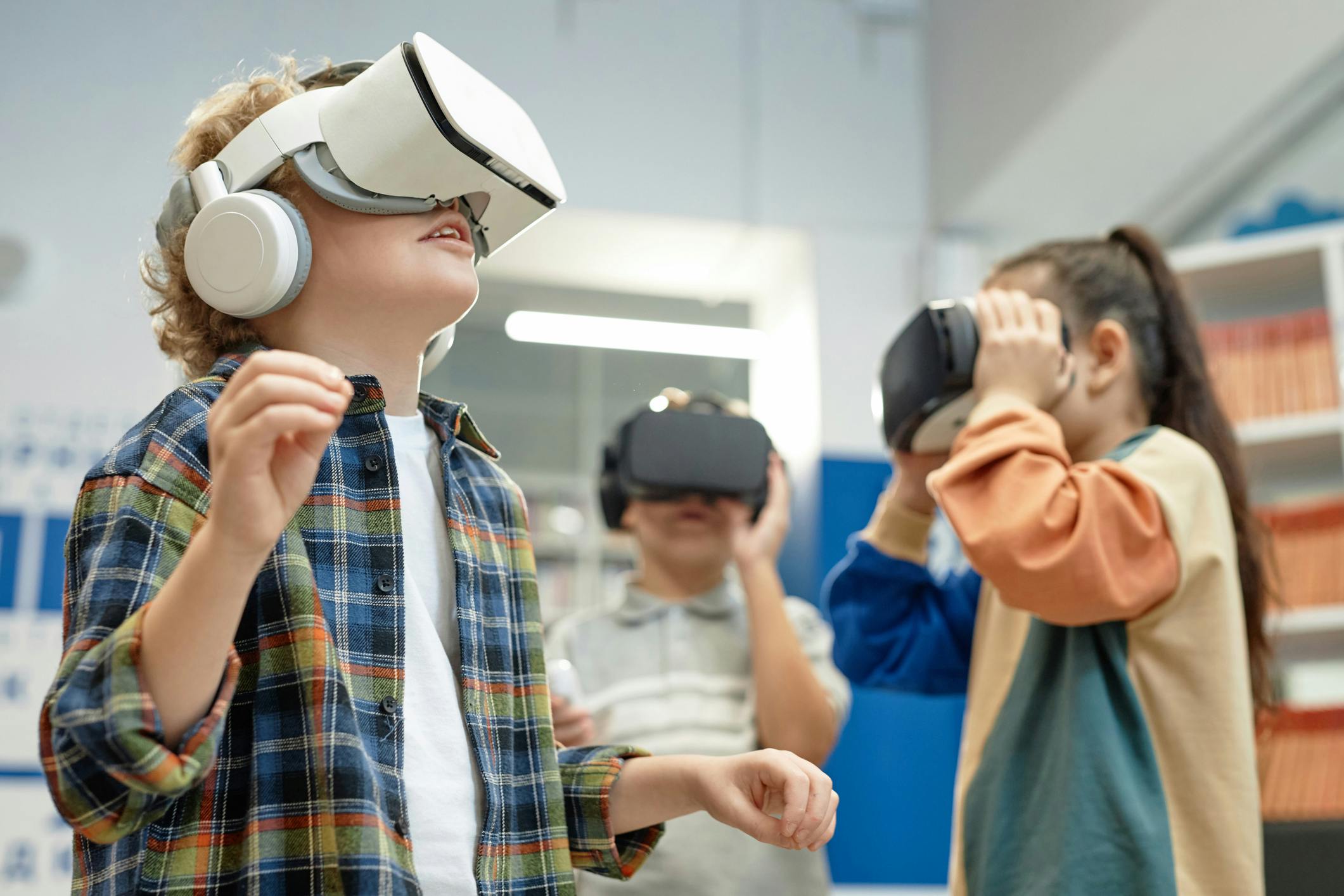What Gen Alpha Can Do To Stay Ahead Of AI

For all the attention Generation Z gets, we need to start talking about Generation Alpha while there is still time to save them from their older siblings’ dismal futures. Born between 2010 and 2024, Gen Alpha is the youngest living age demographic with its members ranging from toddlers to younger adolescents. Most still have all of high school ahead of them and none have entered the workforce as adults.
Live Your Best Retirement
Fun • Funds • Fitness • Freedom
American twelfth graders, who are on the younger side of the Gen Z cohort, are at their lowest reading proficiency levels on record. Our broken education system has enabled that steady decline over the last two decades as K-12 schools push forward failing students who cannot read, and college curriculum has made it possible to earn a degree without reading a whole book. Poor literacy levels have, of course, led to a national crisis with writing ability.
This confluence of trends — combined with the rise of AI — risks Gen Alpha’s future success in work and in life. The good news is that the solution is found at home. Parents can make the home life more conducive to their children’s future success by prioritizing off-screen reading … yes, physical books. Reading books is vital to keeping children ahead of the AI curve. And the home is where children need to become good readers so they can go on to become good writers.
Writing is the necessary transferable skill young people must perform to apply critical thinking, self-awareness, and logic to their jobs, tasks, and everyday lives. Lack of proficiency in the classroom leads to lack of accountability and responsibility in adulthood.
It is impossible to be a good writer without being a good reader, which makes fixing reading proficiency all the more urgent for today’s elementary and middle schoolers. As generative and agentic AI reorganize the workforce, high social and economic status will not be won by those that can simply use AI well, but those who think better than AI and can apply the technology in the production of new knowledge.
The urgency is today. A grown adult with poor reading proficiency is already lost and will spend the rest of his life behind the curve of those that can read, write, think, and do better. That string of verbs is not a list — it is a sequence of inseverable skills necessary to achieve success. If that prognostication seems bleak, that’s because children who use AI to do schoolwork do not see the pitfall lying beyond short-term convenience.
Children’s futures may come to resemble Aldous Huxley’s Brave New World in which the lower castes of menial workers toil under the elite few who are capable of intelligent output. AI does not create new ideas or knowledge; it produces and iterates content based on past information and results. It yields answers derivative of other people’s intellectual labor without activating or engaging critical reasoning skills in the user.
The solution is for children to read good books that stand the test of time and have complex sentence structure. Reading early and reading often in childhood unlocks intellectual and productive potential later in life. Parents should replace at least some of their children’s screentime with good books. The number of books children read is less important than the quality of stories they read. They should mix non-fiction with fiction. The topics and sub-genres do not matter. It is the complement between truth in fact, and truth in expression that helps cultivate minds and critical reasoning.
Millennials are the parents of Gen Alpha and their childhoods model how to select rewarding books in a digital age filled with screentime. Millennials grew up on Reading Rainbow and Wishbone. Reading Rainbow brought children’s books to life with lively narration and Wishbone retold William Shakespeare, Charles Dickens, Walter Scott, Walter Irving, and other great authors.
Parents can find worthwhile books about the animals, fantasy settings, sports, historical figures, and situations depicted in their children’s favorite shows, movies, and games. That is the strategy Reading Rainbow and Wishbone deployed: limited but enriching television content as a tool to catalyze lifelong love of reading and intellectual exploration in children.
Technology has crushed the inner drive and desire to read, and AI is poised to turn that absence into personal failure on a mass scale. Meeting children where they are with a physical book can transition them away from complete dependence on digital technology for entertainment. Exposing children to slightly more literature can open up their worlds and increase chances for success.
I already dubbed Gen Z as the “Wasted Generation” in early 2024, and that still holds true. But if nothing changes substantially, Gen Alpha will suffer from more severe and longer-lasting consequences than the arbitrary concentrated learning-loss Gen Z underwent during COVID-19.
Even with the lightning speed of President Trump’s educational reforms, it will still take years for reforms implemented today to take hold and reverse prevailing trends. Let’s focus on where we can make a long-term difference for most people. That focus needs to be on Gen Alpha. Let’s help them now while we can. Cultivating and encouraging reading at home is the best way for parents to set their children up for success in our brave new world.
* * *
Zachary Marschall, PhD is Editor-in-Chief of Leadership Institute’s Campus Reform and an adjunct assistant professor of arts administration at the University of Kentucky.
The views expressed in this piece are those of the author and do not necessarily represent those of The Daily Wire.
Join us now during our exclusive Deal of the Decade. Get everything for $7 a month. Not as fans. As fighters. Go to DailyWire.com/Subscribe to join now.
Originally Published at Daily Wire, Daily Signal, or The Blaze
What's Your Reaction?
 Like
0
Like
0
 Dislike
0
Dislike
0
 Love
0
Love
0
 Funny
0
Funny
0
 Angry
0
Angry
0
 Sad
0
Sad
0
 Wow
0
Wow
0










































































